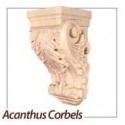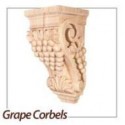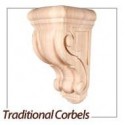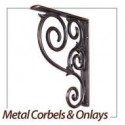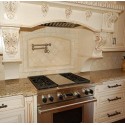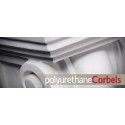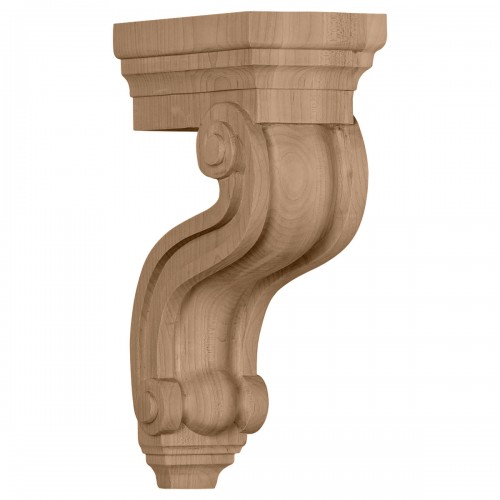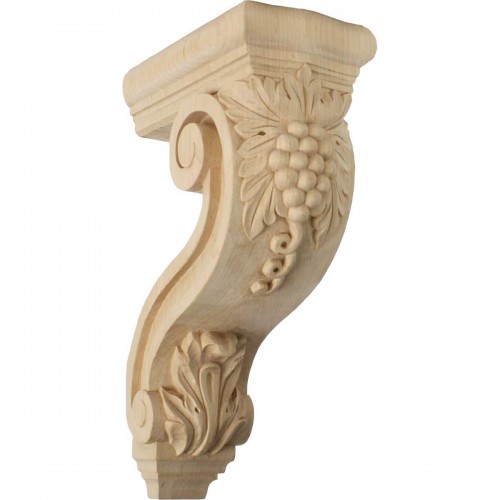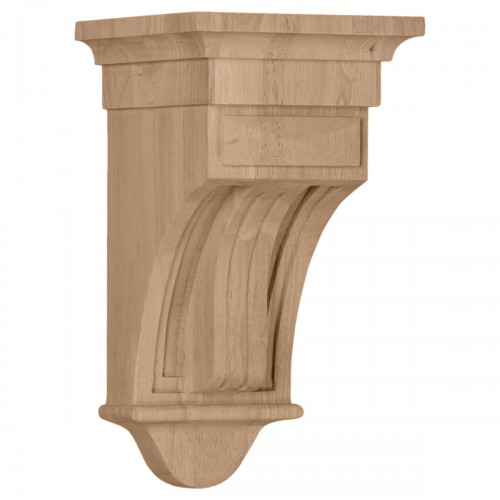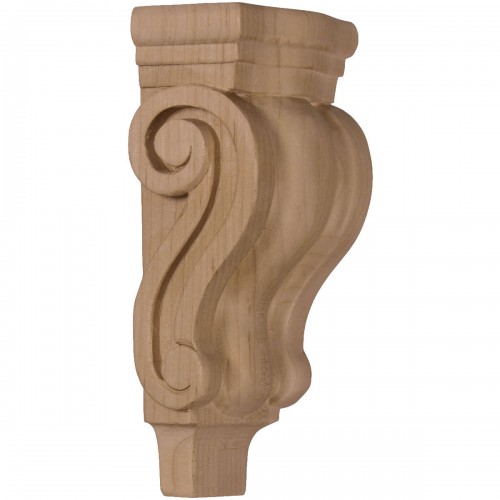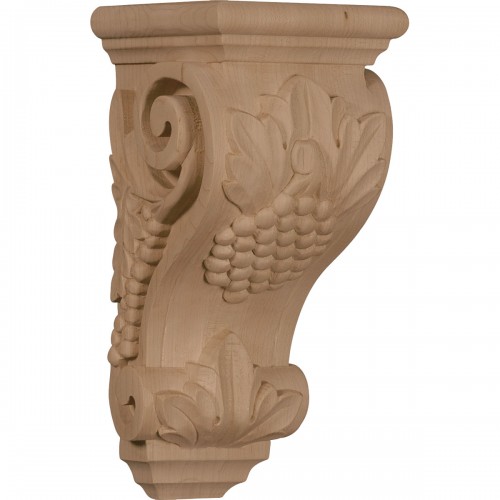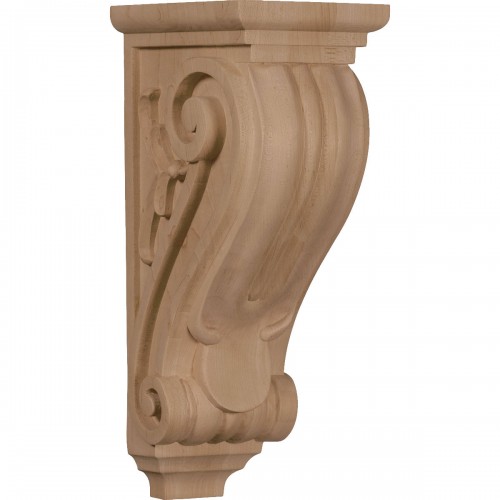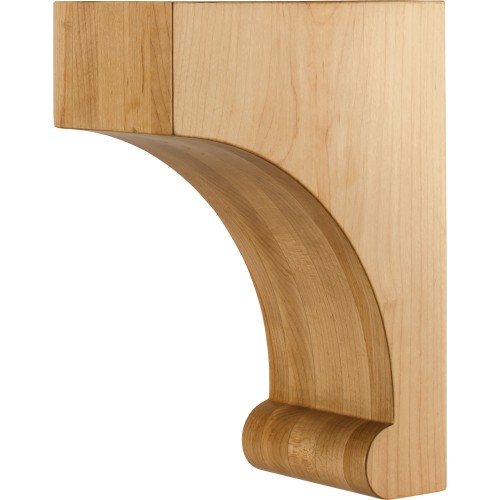Shop by categories
Filter By
Categories
Categories
Brand
Brand
Weight
Weight
-
0kg - 48.4kg
Price
Price
-
$4.00 - $661.00
Select Quanity
Select Quanity
Corbels
Acanthus Corbels
Corbels selected for this page are carved with traditional acanthus leaf design. Many acanthus corbels are slim in appearance, they are long and do not have a significant projection. Wood corbels of this type often used for application on the face of the custom cabinets, furniture or built-ins. These corbels are irreplaceable when it comes to adding architectural embellishments to the kitchen cabinets. All our wood corbels are hand-carved from solid hardwood and ready for final finishing.
Grape Corbels
Grape motifs carved on corbels have been around since the Roman and Greek times. Grapes themselves have great powers such as unclogging arteries. The “French Paradox” shows that even though the French food is so high in fat, the wine that is consumed along the side of the meal, neutralizing the cholesterol in a way, ensuring a longer life.
Traditional Corbels
Most of the corbels come in several sizes and a variety of different woods which makes it easy to fit a wide range of design needs and easy to fit a type of application desired. You can even choose the same design of corbel to carry a theme in a room, but use the right sizes to fit the different tasks in the room. A kitchen, for example: the smaller corbels may be used in the design of cabinetry, medium and large corbels may be used as support structures for countertops as well as shelves.
Metal Corbels
Decorative metal corbels are increasing in popularity, due to their versatility in design. With no need to match wood types, and with a look that fits well whether it is with wood or stone decor, it is not hard to understand the growing demand. Looking just as at home under a granite counter as under a mantel, the availability of some in black or brushed aluminum finishes adds even more flexibility to the range.
Faux Stone Corbels
Faux Stone Corbel Create stunning stone architecture for a fraction of the cost with our Faux Stone products. Made from 100% arcitectural polyurethane, these corbels can be used in indoor or outdoor application. For non-structural use. Textures are molded from real world coral, stone and wood. Available in White Stone or Travertine color. Indoor and Outdoor application 100% water proof Light weight yet strong Will not rot, mold & meldew resistant. Paintable or stain to any color desired Simple installation with drywall screws and construction adhesives
Polyurethane Corbels
Corbels These corbels are for decorative use only. These should not be used for any structural support. Burroughs Hardwoods accent features are manufactured with a dense architectural polyurethane compound (not Styrofoam) that allows it to be very durable and 100% waterproof. These corbels are delivered pre-primed for paint. It is installed with architectural adhesive and/or finish nails. It can also be finished with caulk, spackle and your choice of paint, just like wood or MDF. A major advantage of polyurethane is that it will not expand, constrict or warp over time with changes in temperature or humidity. It's safe to install in rooms with the presence of moisture like bathrooms and kitchens. This product will not encourage the growth of mold or mildew, and it will never rot. -Safe to install indoors or outdoors -Will not absorb moisture -Is lightweight and durable against average wear
Active filters











